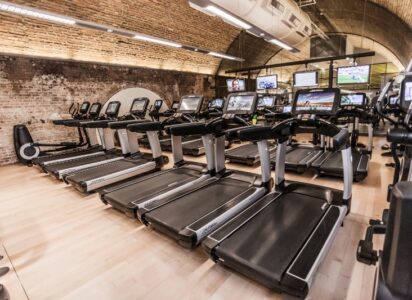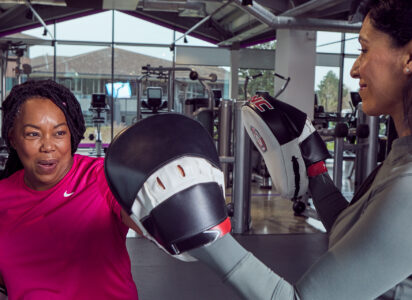Ramadan is a month where Muslims worldwide seek to better themselves spiritually, emotionally and mentally. It is observed according to a lunar calendar and consequently, it does not occur at the same time each year adding a layer of complexity to those who wish to start or continue to better themselves physically during this holy month. To consider training in Ramadan, one must understand the context: Muslims abstain from food and drink from sunrise to sunset. This is important to take into consideration if you are planning to train while observing Ramadan or indeed you are writing a programme for someone to continue training.
This article provides some helpful pointers from Bio-Synergy Ambassador Dr Yusuf Abdallah’s personal experience as a doctor and national champion in boxing. He won his first title off the back of a 12-week training camp that started in the holy month of Ramadan in 2018 so can provide some useful insight into his experiences training while fasting. The information here is not designed to be a one size fits all guide and should not be used to treat or diagnose your own experiences during this time. As always, you should make sure to consult a GP before training while fasted if you have any concerns or existing medical conditions and make sure to stop and check in with how you’re feeling throughout your sessions.
During Ramadan, there are some options: athletes can consider whether they want to maintain or improve their strength and cardiovascular fitness levels. Maintenance is of course much more easily attained during the physically taxing time of Ramadan but improvement is possible. This requires diligent planning of both nutrition and exercise regimens.
When to train during Ramadan
Let us tackle training first, Dr Yusuf finds that the best times to train are as follows:
- 1-2 hours before breaking the fast
- 1-2 hours after breaking the fast
- 1 hour before sunrise
Of course, it is not feasible for everyone to train at all of these times due to life and work commitments but at least one of these should be feasible at some point during your week. For instance, if you work a 9-5 you can quite feasibly train at 7pm (i.e. 2 hours before you break the fast), then replenish, rehydrate yourself and rest for a few hours before performing another session at around 10.30-11pm. If you work unsocial shifts, your training times will have to float around work and it will be a bit more “ad-hoc” but it is still possible. Try to plan your sessions in advance to block out that time in your calendar.
How training differs during Ramadan
Having considered when we may train, let’s consider how.
Cardio
Cardiovascular training i.e. running, boxing, cycling, rowing, etc. in Dr Yusuf’s opinion is a great option to perform fasted. There is some research to suggest that training fasted can improve carbohydrate metabolism and utilisation in non-fasted states. However, bear in mind you will be at the tail-end of a draining fast and possibly draining workday so be sure to check in with how you feel before and constantly throughout your training session. If you feel up to it, then great but you should still limit the duration of the session to 1 hour at most to be safe. You must remember to include a good warm-up and a cool down at the end as a dehydrated body is more likely to fall victim to injuries.
Weight training
For the weight lifting lovers, Dr Yusuf suggests trying to have a light breakfast at sunset before doing your weight lifting session an hour or two later. This will allow you to be adequately fuelled to get the best from your session. In fact, if you’re used to more intensive training, you can combine this into a pre-breakfast cardio session e.g. 45 minute run before a post-breakfast strength session. Again, the key is modulating your intensity; try keeping a diary to document what you do and how your body feels/what numbers you’re doing (e.g. lifts, running times etc). Then see how you respond and adjust accordingly. How much you can do in this fasted state/month will depend on your previous levels of fitness and goals; someone may be able to train twice a day 6 days a week in Ramadan while someone else only needs 3 lighter sessions a week to maintain their physique and in both cases that is a win because they are being active which is the essence of Ramadan; we are not supposed to sit idle and hibernate to make the fast easier.
Nutrition
In terms of nutrition, the bottom line is you need to consume a range of good quality whole foods, including quality protein and vegetables. It can be tempting to enjoy a variety of tasty treats during Ramadan but if your goal is to maintain or improve your physical abilities this can have negative consequences. Dr Yusuf notes that many end up gaining weight which may be difficult to fathom in a month of fasting but for those who have previously observed Ramadan may know what he’s talking about. So what does that mean in simple terms? Let us consider two separate but typical basic goals:
- Lean muscle gain: you will need to keep up strength training as mentioned before but will need to eat more than you burn. Small frequent meals are your friend: you do not want to take a massive breakfast only to feel slow and sluggish leaving you unable to both do a strength session and consume more food later to aid growth.
- Weight loss: this is probably a bit easier. How many meals you have will depend on how many times you train; if you’re training once before breakfast then you can simply have breakfast then have a midnight snack before having your meal before sunrise. If you are training twice, you will need to split it further into smaller meals ideally getting a meal before and after the second session of the day to aid recovery. Focus on protein and spreading your carbs out over the day to maintain your energy levels.
Finally, as mentioned it’s important to take note of how you’re feeling. You might have to be more flexible with your training routine and include some tips from our article in intuitive training to help you keep up your healthy habits during Ramadan. Whatever training split you end up choosing, we hope you have a safe and healthy holy month and we can’t wait to see you back in the club when you’re ready.
So there we have it. That’s Dr Yusuf Abdallah’s experience with training during Ramadan over the last 6-7 years as a boxer. We hope you find some benefit from this and some useful tips you can incorporate into your own routine. If you have any question for him, you can reach out directly on Instagram.
If you want to find out more about Bio-Synergy and your exclusive member discount, head over to AF Connect Online.
Don’t forget to sign up to our blog’s mailing list to be the first to hear about our new articles and get updates and advice straight into your inbox. You can also check out our Facebook or Instagram for daily updates to help you make healthy happen.






